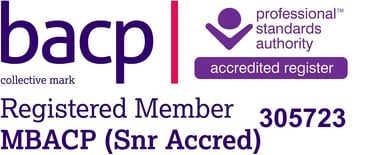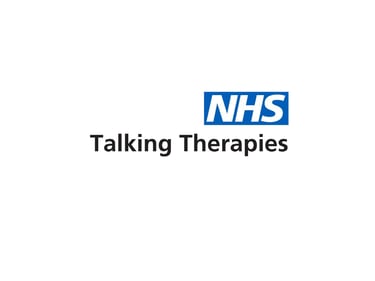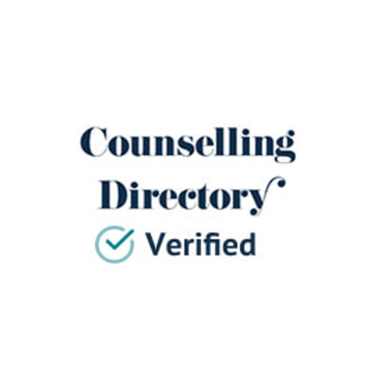Supervision and Neurodivergence
Making It Work for You


Supervision and Neurodivergence: Making It Work for You
Supervision is a crucial part of a therapist’s professional growth, offering support, ethical guidance, and self-reflection. However, for neurodivergent therapists—whether autistic, ADHD, dyslexic, or otherwise—traditional supervision models may not always be accessible or effective. Creating a neurodivergent-friendly supervision space requires flexibility, understanding, and collaboration. Whether you’re a neurodivergent therapist looking to get the most out of supervision or a supervisor aiming to support neurodivergent supervisees, here’s how to make supervision truly work for everyone.
Understanding Neurodivergence in Supervision
In my experience neurodivergent therapists bring unique strengths to their work, including deep empathy, creative problem-solving, and innovative thinking. However, traditional supervision settings may present challenges, such as:
- Processing and communication differences: Some supervisees need additional time to process feedback, may struggle with verbal discussions, or prefer written communication
- Sensory sensitivities: Bright lights, background noise, or video calls can be overwhelming and impact concentration
- Executive functioning challenges: Managing paperwork, structuring discussions, and tracking progress may require tailored strategies
- Masking and people-pleasing: Many neurodivergent professionals feel pressure to ‘mask’ their natural ways of thinking or communicating, making supervision feel more stressful than supportive
An inclusive approach to clinical supervision acknowledges these challenges and adapts to meet individual needs, ensuring a positive and productive experience.
Tips for Neurodivergent Supervisees: Getting the Most from Supervision
If you’re a neurodivergent therapist, your supervision should be a space where you feel safe, supported, and empowered. Here’s how to tailor the experience to your needs:
1. Advocate for Your Needs in Supervision
Supervision should work for you, not against you. If you need time to process feedback, prefer written reflections, or find video calls overwhelming, communicate these preferences to your supervisor. Requesting reasonable adjustments in supervision is part of ensuring a supportive and effective professional relationship.
2. Explore Different Supervision Formats
Not all supervision needs to follow a rigid, talk-based model. Many neurodivergent therapists benefit from:
Written supervision (email reflections, shared documents, or structured notes)
Visual aids such as diagrams, mind maps, or bullet-pointed summaries
Shorter, more frequent check-ins instead of lengthy sessions
A combination of in-person, phone, or online sessions tailored to sensory needs
3. Structure Supervision Sessions to Suit Your Learning Style
Unstructured discussions can feel overwhelming. Using an agenda, preparing key topics in advance, or having your supervisor summarise main points at the end of a session can make supervision more effective and easier to process.
4. Reduce Masking and Prioritise Authenticity
Supervision should be a space where you can be yourself. If you find yourself masking or over-explaining to fit neurotypical expectations, consider discussing this with your supervisor. Finding a neurodiversity-affirming supervisor can help create a more relaxed, productive environment where you don’t have to ‘perform’ neurotypicality.
Tips for Supervisors: Supporting Neurodivergent Supervisees Effectively
Supervisors play a key role in creating an inclusive and affirming supervision experience. Here’s how to provide the best support for neurodivergent therapists:
1. Ask About Individual Needs
Neurodivergence is diverse—every supervisee will have different needs. Instead of assuming what works, ask how they prefer to communicate, process information, and receive feedback.
2. Offer Flexible Communication and Feedback Options
Some supervisees may prefer written communication over verbal discussions, while others may need additional processing time before responding. Offering alternatives, such as follow-up emails, recorded voice notes, or structured feedback, can make a significant difference.
3. Be Mindful of Sensory and Processing Needs
The supervision environment matters—bright lighting, excessive noise, or long video calls can be overstimulating for some neurodivergent therapists. Offering flexible options, such as shorter sessions, camera-off allowances, or alternative meeting formats, can create a more accessible space.
4. Use a Strength-Based Approach in Supervision
Neurodivergent therapists often receive messages that they need to ‘fix’ their differences. A strengths-based supervision approach acknowledges their unique skills—such as deep focus, creativity, and high levels of empathy—while also offering tailored support where needed.
In Summary - Strive to Create Inclusive Supervision for Neurodivergent Therapists
Supervision should be a supportive, empowering experience that helps therapists grow, reflect, and thrive in their practice. By fostering open conversations, embracing flexibility, and prioritising accessibility, supervisors and supervisees can work together to create a truly neurodivergent-friendly supervision space.
For neurodivergent therapists, finding the right supervision approach is key to feeling validated and supported in their professional journey. And for supervisors, adapting to neurodivergent needs isn’t just an accommodation—it’s an opportunity to foster an inclusive and enriched supervision experience. When supervision is inclusive, everyone benefits.






